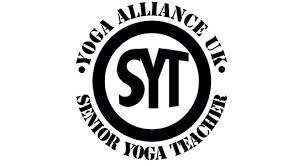Twenty minutes of yoga is better for boosting brain activity than vigorous exercise for the same amount of time, a study has found.
Researchers found that following yoga practice the participants were better able to focus their mental resources ,
Researchers report that a single, short session of the popular Hatha yoga significantly improves working as it improves memory, speed and focus, more so than regular workouts.
The university study involved a 20-minute progression of seated, standing and supine yoga postures that included contraction and relaxation of different muscle groups and regulated breathing. The session concluded with a meditative posture and deep breathing.
The 30 female undergraduate students at the University of Illinois in the US, also completed an aerobic exercise session where they walked or jogged on a treadmill for 20 minutes.
Each subject worked out at a suitable speed and incline of the treadmill, with the goal of maintaining 60 to 70 percent of her maximum heart rate throughout the exercise session.
The researchers were surprised to see that participants showed more improvement in their reaction times and accuracy on cognitive tasks after yoga practice than after the aerobic exercise session, which showed no significant improvements on the working memory and inhibitory control scores.
Researchers found that following yoga practice the participants were better able to focus their mental resources, process information quickly and more accurately and also learn, hold and update pieces of information more effectively than after performing an aerobic exercise bout.
"The breathing and meditative exercises aim at calming the mind and body and keeping distracting thoughts away while you focus on your body, posture or breath,” Professor Neha Gothe, who led the study, reported.
“Maybe these processes translate beyond yoga practice when you try to perform mental tasks or day-to-day activities."
The study team said several factors could explain the results.
Prof Gothe said: "Enhanced self-awareness that comes with meditational exercises is just one of the possible mechanisms. Besides, meditation and breathing exercises are known to reduce anxiety and stress, which in turn can improve scores on some cognitive tests.”
Prof Edward McAuley, co-author of the study, said: "This study is extremely timely and the results will enable yoga researchers to power and design their interventions in the future. We see similar promising findings among older adults as well.
“Yoga research is in its nascent stages and with its increasing popularity across the globe, researchers need to adopt rigorous systematic approaches to examine not only its cognitive but also physical health benefits across the lifespan."
An earlier study also found that regular sessions of the exercise can help fight off depression as it boosts levels of a chemical in the brain which is essential for a sound and relaxed mind.
Scientists from the Boston University School of Medicine found that the levels of the amino acid GABA are much higher in those that carry out yoga than those do the equivalent of a similarly strenuous exercise such as walking.
Low GABA levels are associated with depression and other widespread anxiety disorders.



